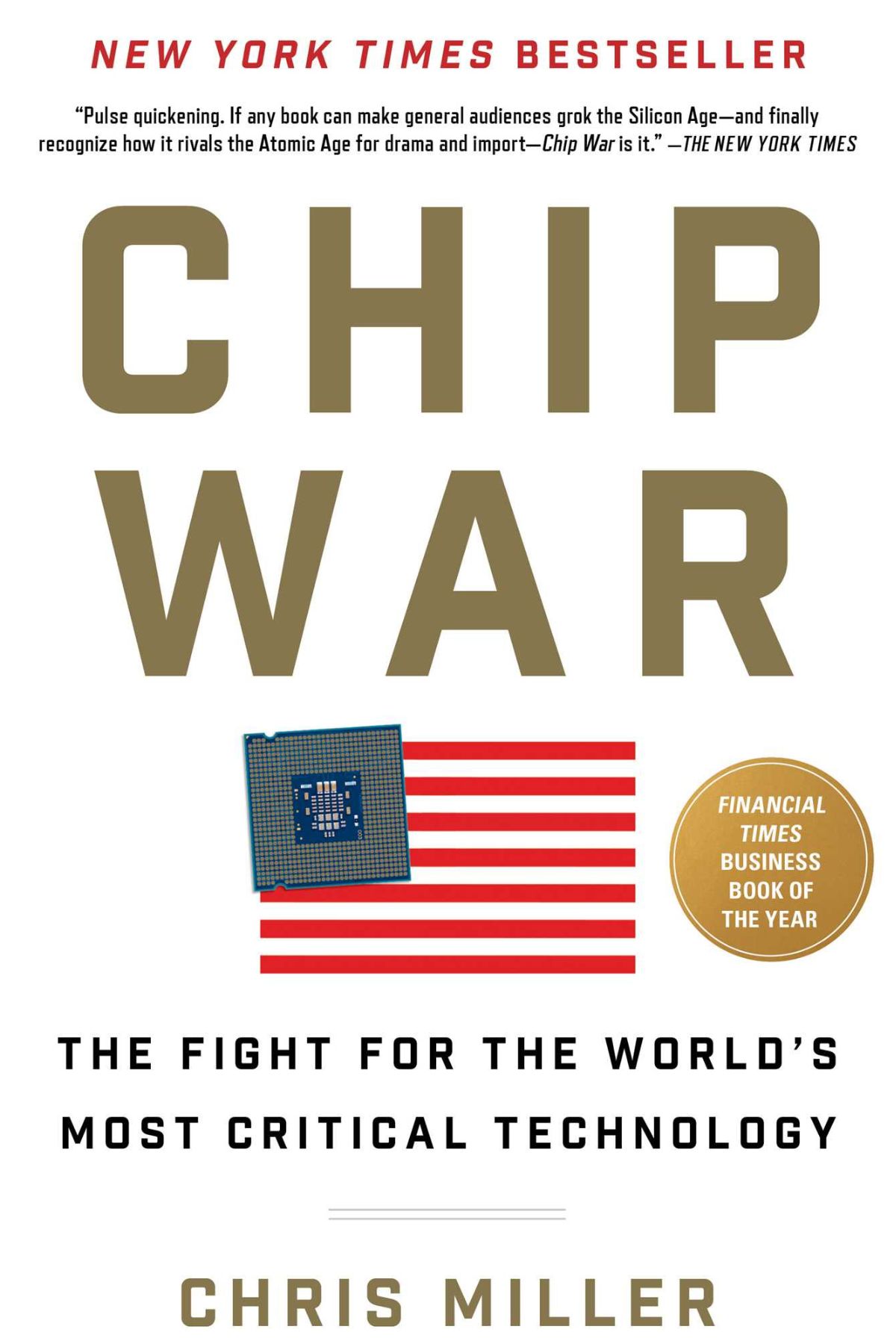The chips they invented and the industry they built provide the hidden circuitry that;’s structured our history and will shape our future.
- "Chris Miller"
2022 is coming to a close in a few days. This year has been a difficult one for me, with many challenges. Fortunately, I have some great books to read. One of them is Chip War, written by Chris Miller. It caught my attention when Financial Times awarded it the Business Book of 2022, and I had been doing some research on the global supply chain recently. Semiconductors were an industry I wanted to focus on, so I thought buying this book would help me gain a better understanding. I have been enjoying every page since then.
Chip War might sound like a fiction book, but it is actually a history book, tracing the development of integrated circuits back to the 1940s when Shockley first theorised the "solid state valve". Like most innovations, chips were first applied for military purposes, helping the US win the Cold War against the Soviet Union. Texas Instruments and Fairchild, pioneers of semiconductor firms, were born during this turbulent time. The "Traitorous Eight" founding employees of these two companies became pioneers and the foundation of this industry. Without their contribution, many technology innovations would have been impossible. Invention of the Dynamic Random Access Memory (DRAM) and microprocessor by Intel enabled multiple implications for the mass public. In the 1960s, the US government began to offshore production to Asia, such as Hong Kong and Singapore, where labor costs were significantly lower. As the cost of manufacturing chips decreased, mass production for the public became feasible.
In the 1970s, thanks to American support after the war, Japan began to rise and posed a direct threat to America's leading position in chips. Sony emerged as a leader in consumer electronics, capturing 80% of the DRAM chip market. It seemed like game over for America, but the story took a different turn. American chip firms made a resurgence, particularly Intel, which disrupted the industry with a product that has been successful to this day. Korea took advantage of the blind technology war between America and Japan, growing quickly with American help. It identified semiconductors as a priority, and Samsung rose to become one of the world's top technology companies, with advanced chip fabrication facilities. The global semiconductor industry became increasingly integrated, with America leading the design and software parts, and a few European and Asian countries controlling the rest. Notably, Taiwan's TSMC produces 41% of all processor chips and more than 90% of the most advanced chips, which all high-tech electronics rely on. AMSL, the monopoly in the lithography market, produces worth more than 300 million steppers, which are an essential part of chips.
Multiple factors are driving the development of this industry, with politics being a major influence as semiconductors are critical for improving military capability. Chris Miller's part of the story depicts the political conflict between China and the USA. America has been the main actor throughout, weathering ups and downs. It still holds the choke points of the semiconductor industries. Companies such as Huawei, the leader in 5G technology, have taken a hit from this war. China has grown to a power that cannot be ignored by anyone, and there are huge concerns about the monopoly of TSMC given the ever-intense relationship with the PCR. Regardless of the political issues, Moore once predicted that the number of transistors in a chip would double every year. Decades have passed, and many have declared the law dead, but that has never been the case. The durability of Moore's Law has surprised these people, and it will continue to do so as breakthroughs in chip technology take place.
Chip War completely changed my perception of chips and the industry. If you asked me what the most critical industry in the world is, I would say it's the semiconductor industry. Everything from missiles to microwaves, smartphones to the stock market runs on semiconductors – the modern world simply cannot function without them. As Chris wrote in the book, “the history of the semiconductor is a story of technology advancement, sales, marketing, supply chain management, and cost reduction.”
